
Month: September 2011


Album Review: LeAnn Rimes, Lady and Gentlemen
 LeAnn Rimes
LeAnn Rimes
Lady and Gentlemen
A new covers album from LeAnn Rimes would likely draw comparisons to her 1999 self-titled effort, which found her covering the likes of Hank Williams and Patsy Cline. But this time, there’s a twist: All of the songs she’s covering were originally recorded by male artists. Thus, Rimes is re-interpreting them in a female perspective.
And while 1999’s LeAnn Rimes album might have given you a feeling that you were listening to really good karaoke singer, as her versions seldom strayed far from the originals, Rimes’ new collection Lady and Gentlemen finds her taking substantial liberties with these classic hits. She even alters lyrics on Waylon Jennings’ “Good Hearted Woman” and “Only Daddy That’ll Walk the Line” (re-titled as “The Only Mama That’ll Walk the Line”). The songs are given modern, yet reverent, production arrangements, with Rimes adding her own personal style to each one, resulting in a uniquely creative effort.

100 Greatest Men: #82. Fiddlin’ John Carson
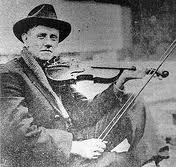 100 Greatest Men: The Complete List
100 Greatest Men: The Complete List
It’s no wonder that so many purists believe it just ain’t country if you don’t have a bit of fiddle. Thanks to Fiddlin’ John Carson, the first legitimate country hit had fiddlin’ all over it.
Like many performers of his generation, being a musician meant live performances. Hailing from Georgia, Carson traveled around the south for decades playing his signature fiddle. While the meager pay meant he had to work several other side jobs, one of which was manufacturing moonshine, Carson’s fame outpaced his fortune.

Single Review: Lee Brice, “Woman Like You”
 Lee Brice’s new release is a song that sets a casual conversation to music. Woman asks husband, “Honey, what would you do if you’d never met me?”
Lee Brice’s new release is a song that sets a casual conversation to music. Woman asks husband, “Honey, what would you do if you’d never met me?”
Answer: “I’d do a lot more offshore fishin’ / I’d probably eat more drive-thru chicken / Take a few strokes off my golf game / If I’d have never known your name / I’d still be driving that old green ‘Nova / I probably never would have heard of yoga / Be a better football fan / But if I was a single man / Alone and out there on the loose / I’d be looking for a woman like you.”

100 Greatest Men: #83. Freddie Hart
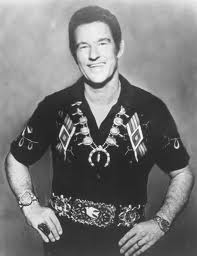 100 Greatest Men: The Complete List
100 Greatest Men: The Complete List
Back in country music’s golden age, an artist could maintain a solid career for two decades before suddenly reaching a massive height of popularity.
Freddie Hart was a great example of this. As one of fifteen children born to an Alabama sharecropper, Hart’s only chance at success was striking out on his own. Though he played guitar since the age of five, Hart’s first tour of the world was as a soldier at the age of fifteen. He lied about his age to join the service during World War II.

100 Greatest Men: #84. Uncle Dave Macon
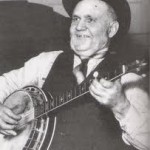 100 Greatest Men: The Complete List
100 Greatest Men: The Complete List
Every country star with their salt longs to play the Opry stags. That’s thanks in large part to Uncle Dave Macon, who helped put the Opry on the map.
Macon began performing at a young age, learning skills from the wide variety of guests who passed through his family’s hotel. But he chose a career in freight trains instead, and settled for being an amateur performer until he was in his fifties.

Retro Single Review: Alan Jackson, “Dallas”
No, this isn’t Alan Jackson covering The Flatlanders, although that would have been phenomenal. Rather, this is Jackson performing right in his sweet spot: a simple enough song, yet with some clever lyrics, a generous dose of pedal steel and Jackson’s typical smooth, agreeable vocals. “Dallas” may not be Jackson at his most experimental (see “I’ll Go On Loving You”) or mainstream (“Chattahoochee”), but it’s a pleasant little gem in a very rich catalog of music.

100 Greatest Men: #85. Marty Stuart
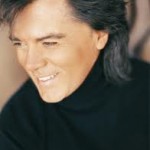 100 Greatest Men: The Complete List
100 Greatest Men: The Complete List
He enjoyed a brief period of radio success, but Stuart’s legacy was cemented when he left the commercialism behind and embraced the country concept album.

100 Greatest Men: #86. Nitty Gritty Dirt Band
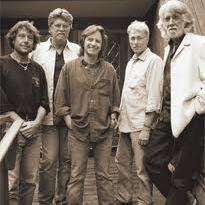 100 Greatest Men: The Complete List
100 Greatest Men: The Complete List
They’ve been around in various incarnations for more than four decades, but the common thread has always been a deep respect for, and desire to preserve, the history of country music.


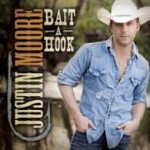
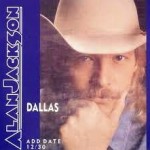
 Did you wake up this morning thinking “Man, I would sure love to hear another song about being from the sticks in the backwoods, and not giving a damn what those stuck-up city folks think?”
Did you wake up this morning thinking “Man, I would sure love to hear another song about being from the sticks in the backwoods, and not giving a damn what those stuck-up city folks think?”